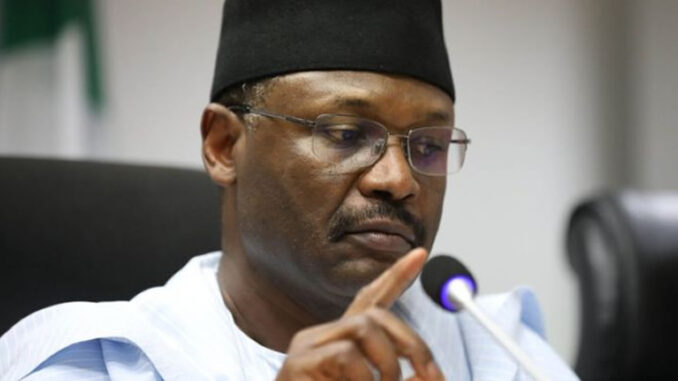
… Commend voters patience
Chief Observer, Mr. Barry Andrews, Member of the European Parliament has knocked the credibility of independent National Electoral Commission INEC for lack of transparency in the just concluded presidential election.
Mr. Barry said even though election actually held on the scheduled but was truncated by operational failures from the devices used in conducting the presidential and national assembly elections respectively.
presenting the preliminary findings of the
European Union Election Observation Mission (EU EOM) on the 25 February general elections Mr Barry in a press conference with some journalists in Abuja, expressed displeasure on the performance of the election empire saying that the longitudinal conditions of the electoral misdemeanor has reduced trust in the process and challenged the right to votes.
According to him “Millions of Nigerian voters cast their vote in the Presidential, Senate and House of Representatives elections respectively
despite prevailing challenges. I commend the patience of voters as well as the commitment of youth, who have
contributed hugely to the democratic process,”
He said even though some Stakeholders have expressed their overall satisfaction on the
confidence in INEC independence and professionalism in the preparatory phase. However, INEC’s lack of efficient
planning in critical stages and effective public communication reduced trust in the process, including on election day.
According to the findings of EU EOM observers, election day was marked by late deployment and opening while
polling procedures were not always followed. Polling staff struggled to complete result forms, which were not posted publicly in most polling units observed. The introduction of the Bimodal Voter Accreditation System (BVAS) and the INEC Results Viewing Portal (IReV) were perceived as an important step to ensure the integrity and credibility of the elections. However, uploading of the results using the BVAS did not work as expected and presidential election result forms started to appear on the portal very late on election day, raising concerns.
The general elections offered voters a real choice of candidates in a highly competitive campaign. However, political parties denounced unequal campaign conditions due to interference and increase in violent incidents with a potential to impact the elections and suppress voter participation. Civil society played an increasingly important role in mobilising youth, supporting voter education and, with almost 150,000 observers, holding electoral institutions accountable.
“The tabulation exercise is still ongoing, and we will follow the processes until the end. I encourage stakeholders to continue demonstrating commitment to a peaceful process before and after the results are announced. Any dispute arising from the electoral process should be addressed through established legal channels,” said Barry Andrews.
Also speaking at the conference Ms. Evin Incir, Head of Delegation of the European Parliament, said: “I wish to express my concern that less than
10 percent of candidates were women. The next government and parliament should heed to the manifestos of the main political parties of Nigeria, which call for affirmative action, such as quotas.”
Media offered an extensive and fairly equitable campaign coverage despite challenges. Social media platforms were misused to spread harmful content and measures taken by platforms to protect electoral integrity were insufficient. Positively, online and offline media joined forces with civil society and fact checkers to safeguard the integrity of the pre-election information environment.
She revealed that the EU EOM deployed 110 observers from EU member states as well as Canada, Norway and Switzerland for the general elections. The EU EOM is independent in its findings from EU Member States and all EU institutions